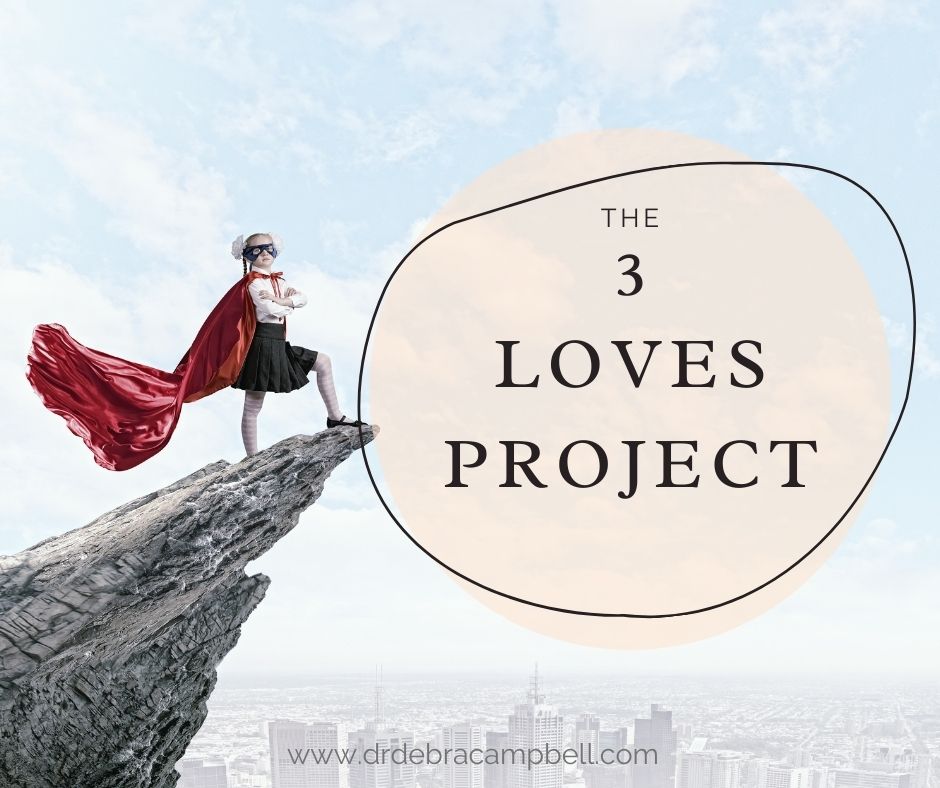Anna (not her real name) came to see me because she felt ‘stuck’ and she’d been intrigued by a talk I gave on creating soulful relationships.
Anna was in her 60s and mother to a ‘forty-something’ daughter, Lily (again, not her real name). Lily was a successful small business owner, a wife and mother of a ten-year-old girl and a three-year-old boy. Lily was also a chronic alcoholic who had been through inpatient rehabilitation programs three times in 20 years and had made countless attempts to stay sober, some lasting years, some only hours. Lily had now, for the last year or so, been drinking heavily again, bringing to the end her longest ever period of sobriety.
Anna came to tell me of her concerns for Lily, or so she framed her visit. It soon became apparent that Anna was intensely focused on her own pain, and biting disappointment and anger that Lily was not the daughter she wanted her to be. Anna felt that Lily had had every opportunity to do well in life, and indeed in some ways she had excelled. However, for Anna, it was unbearable to see Lily sleeping through school pickup times, ignoring her husband and snapping at the children everyday due to alcoholism.
I asked Anna about the state of her relationship with Lily currently, wondering why after all these years, she was here, now, talking to me.
“Did something different happen recently?” I asked, hoping to understand the situation more deeply.
“Yes, a little” answered Anna “It got worse after I wrote her a letter to let her know how difficult it was that she was drinking again, how disappointed I was and how afraid I am it is actually going to make ME sick having to deal with her like this”.
“I guess that didn’t help get a conversation going?” I asked, not needing to hear the answer, but hoping that asking the question might spark further reflection.
“No, it didn’t” she said.
“You are worried for your health you say Anna, are you unwell?”
“No, I just wanted her to know I am afraid for my health because her drinking again makes me feel, unwell, physically sick…”
“You wanted her to know that her actions might make you sick?”
“Yes” Anna stopped to take a tissue.
We paused a while to reflect on the situation as described so far.
“Is this the first time you’ve written Lily a letter about your feelings?”
“Yes. I usually tell her how I feel in person”.
“And how does she usually respond to you?”
“Not well. Angrily. She shuts down for a few days and I can’t see the kids, my grandchildren, and she won’t speak to me or let me into their house.”
We spoke for a while about how, just maybe, Lily cannot bear her own feelings easily, that she may be struggling with her own disappointment at yet another relapse, let alone the feelings of disappointment her mother has toward her. Further, Anna expressed not only disappointment, but that Lily is in danger of making her sick. We wondered together how easy that would be for Lily to read, and whether it would be helpful to hear on either side, all things considered. I comforted Anna that her feelings were absolutely normal under the circumstances, and very real.
Yet, holding that in mind, I asked if we might reflect on a question to bring a larger perspective to the situation, a situation where a lot of people are in pain, a lot of people are under pressure and being affected. I wondered with her if we might reflect through a spiritual lens, on the bigger picture of the situation as well as holding her intense feelings of this moment?
Anna agreed.
The question I wanted to ask was from the core of the talk Anna had heard that had drawn her to approach me:
“Is what I’m about to say or do likely to be helpful, to me or the other person, in the bigger picture of this situation?”
Anna understood, and she quickly replied that she thought it was probably not helpful to criticize Lily and tell her she was making her (Anna) sick. It might be true, but it might not be helpful to Lily, to their relationship, or to staying engaged and helping the grandchildren because Lily shut Anna out of their lives whenever she felt criticized. On reflection, Anna stated that expressing her feelings to an actively alcoholic Lily had no positive outcomes for anyone, except for giving Anna a chance to vent, then regret her venting.
I asked Anna about how she has typically coped with Lily’s drinking all these years, and she said she really hadn’t coped well. Anna felt that a wedge had been gradually driven further and further between them over time. Anna had coped by asking Lily to stop drinking time and time again, by helping her with the family as much as she could and by praying, asking for help and wellness for Lily and all of them from God. She also prayed for Lily to show more kindness and to be less hard on the three year old boy in particular, who had developed behavioural problems. Anna often wondered why her prayers to her God felt so unanswered, why God could not help them with the change they needed. Anna attended a Christian church every week and enjoyed the fellowship aspect, but felt her faith was weakened by the lack of any perceivable answer to her desperate prayers.
Disheartened that her prayers seem always unanswered she had started looking elsewhere for help, attending different churches and coming to see me. We decided to look at the principles of her faith to see where she might translate them into practice in her relationship with Lily, rather than waiting for them to be applied from outside by praying to an interventionist image of God. We wondered if our own resources are perhaps the way Spirit expresses itself best in our lives and how we might examine that idea.
After some conversation, we came to wonder whether there was great opportunity in which Anna herself could be the carrier of the kind of change she prayed would come from a Higher Power. Did Anna have some power herself to embody a change of perspective towards Lily – whether Lily deserves it or not, whether she is angry with Lily or not?
Anna named compassion, forgiveness and unconditional loving as the qualities she saw as most important in her Christian faith. Therefore, we decided to look at what Anna was empowered to do, what she could do to activate in herself right now a shift or a new perspective from her spiritual understanding that might bring about better outcomes with Lily.
We discussed that while Anna changing her behaviour consistently to being less judgmental and accusing towards Lily may not change Lily’s drinking in the short-term, it may start to rebuild some trust on Lily’s side. It may also mean that Lily might be more open to sharing the grandchildren’s daily lives with Anna, rather than shutting her out in what seemed to be punitive and defensive action against feeling criticized and judged.
We looked at all the ways in which Anna might lighten Lily’s perception of her load in life, without detriment to Anna herself, in order to join forces with Lily and encourage her to feel more empowered rather than exacerbating her shame, low self-esteem and feelings of overwhelm. We agreed that insisting Lily was responsible for keeping her Mum healthy by complying with her Mum’s angrily expressed demands was not helpful to Lily, and therefore not helpful to maintaining wider family cohesiveness, particularly under this already strained situation.
Anna decided that the question
“Is what I am about to do or say likely to help the situation?”
was the key question she could ask before expressing herself with Lily. Being less openly critical was not necessarily going to change Lily, at least not directly, but it didn’t aim to. It might however, take a lot of pressure off everybody in this crisis period.
More broadly, Anna realised once and for all, that after two decades (or I suspect perhaps even most of Lily’s lifetime) telling Lily she needed to change her behaviour and her self, it was Anna who could really model being a bigger person for the sake of those who were younger than her. It was Anna who held the power to very personally embody the fundamental Christian principals she cherished such as acceptance, forgiveness, compassion for pain she may not understand, and healthy self-management of feelings.
These were deeply Christian understandings for a deeply Christian woman, but they need not have been framed in a way that was specific to religion. Anna grasped these spiritual wellbeing principles in a new way that would also have been theoretically possible without religious beliefs, had she not had them. Anna realised that she didn’t have to limit herself to just praying and waiting in seeming helplessness but that she could also activate the spirit of a loving ‘higher’ power through herself. Prayer could be helpful, but it wasn’t always enough on its own.
One of the difficulties of pain is that we cease to see as widely as we might, our vision is narrowed and we can miss recognising the spectrum of growth opportunities possible, evoked by the suffering. We can too easily lose focus on the vast nature of who we are, that we are more than our feelings and thoughts in each moment, and that we may have more power over ourselves, than we realise. We can miss seeing that we are acting in a manner that is the opposite to that kindness, compassion and unconditional love we pray will intervene from outside ourselves.
A spiritual psychology allows us to remember the vast unlimited nature of our consciousness, of our heart, of being a good presence in the world. It helps us to see that other actions may be more helpful and ultimately rewarding than getting to express how peeved and disappointed we are in the moment. A spiritual perspective beckons us to be the ‘bigger’ person when our body, our thoughts, our emotions feel limiting, diminished and small.
While Lily had not stopped drinking last time I heard, Anna was enjoying more open communication and more time with Lily and the kids. Anna felt she was now much better positioned to help the family as a whole. She herself felt more empowered around the situation and proud of herself for having more to share with her daughter than just ongoing anger and disappointment. Anna still prayed and she felt stronger in her spiritual life because she felt she was practically expressing her faith and employing her long-held spiritual values in ways that translated into better relating.
This quote (below) from Danielle Laporte sums up the idea of creating a spirituality that you can really use, not just a spirituality of words or images to look at from the church pews or meditation stools, but an embodied enriching way of life:
“My version of spirituality has to be practical. It’s got to work in my kitchen, it’s got to work in my bedroom, and it’s got to work in my heart.”
Danielle Laporte, The Desire Map.
I shared the quote with Anna and she felt it was worthy of placing on her refrigerator door as a daily reminder. Anna wants to keep in touch and plans to let me know of any further progress with Lily.
This article was originally published in The Journal of Spirituality in Clinical Practice.
If you want solid self-transformation resources or relationship advice, I have some psychologist created stuff to help you.
Just BE the love that you ARE.
Deb x





